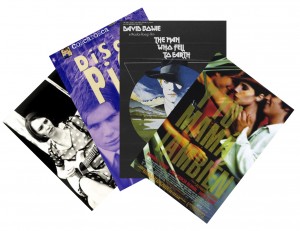Tags
Related Posts
Share This
Prepping Oasis and Disposables
Following selections of Shoot the Stars third season scripts “Oasis Motel” (written by Julie Wittrock) and “The Disposables” (written by Keegan Moore and Dylan Hamilton-Smith), The Film School has recently announced the directors and producers of the ambitious two-day shoot scheduled for November. After interviews with Department Chair Chris Eyre and production mentor Hank Rogerson, Bonnie Burchfield—a senior film major and co-producer of last year’s “Mister Stapleton”—will direct “Oasis Motel,” a contemporary drama with a strong female lead. And Peter Crowder, senior film major, will tackle the “Enter the Dojo” web series spinoff titled “The Disposables.”
“It wasn’t a script that was submitted,” Crowder says, explaining the circumstances of “The Disposables” selection. In the past, scripts have been chosen from a pool of student submissions, usually one drama and one comedy. “It was an idea that the school had,” Crowder explains, “a marketing move a bit.”
Because College of Santa Fe alum Matt Page has gained wide viewership on his “Enter the Dojo” web series (about the world of an American karate school taught by Matt Page’s character Master Ken), Crowder explains that The Film School was hoping for Page’s “followers” to become aware of Shoot the Stars, while Shoot the Stars would provide an unique opportunity for “Enter the Dojo.” So while the branding of Page’s web series remains consistent, the Shoot the Stars team would have creative rights to an original Dojo offshoot.
In preparation for writing a script, Crowder explains that the new Shoot the Stars class watched “Enter the Dojo: 100 Ways to Kick the Groin” in order to “get a feeling” of Page’s style. Consequently, film students Dylan Hamilton-Smith and Keegan Moore (the Dylan and Keegan comedy duo as they’re known in The Film School) wrote a fitting short called “The Disposables.”
“If you remember The Expendables,” Crowder says, “about a group of aging action heroes…that could be an [inference] of the title of our project.” Regarding the writers of “The Disposables,” Crowder adds, “they’re absolutely hilarious people.”
Despite working closely with Page in branding consistency, Crowder says that the Shoot the Stars team won’t be creating another web series episode, but a “little feature[tte] of what is Master Ken’s life outside of the Dojo.” And though Page’s Master Ken character will be key in the original script, the required Shoot the Stars guest actors (an unidentified 40-year-old woman and 50-year-old man) will also appear in the story. “The script is in motion, it’s fluid and subject to change,” Crowder says. Meanwhile, he prepares for his shoot by analyzing the script and solidifying the “look” of the film.
As far as an artistic vision, it helps that Crowder’s range of filmmaking is so diverse. Able to “play with the cheesy and funny action films” to the “bad B movies,” Crowder says he has experience in working with heavy visuals as well as heavy dialogue. And running, for example, SFUAD’s Rock Horror Picture Show on campus for the third year running has made “working with other people” his speciality. “If a script is intentionally bad or even unintentionally bad,” Crowder muses, “there is an opportunity to make it a great movie. It’s so much fun to do that!”
Supporting Crowder as co-producers in “The Disposables,” juniors Matthew Krekeler and Anastasia Gendelman have already begun planning for the November shoot. This week, the producers will hold, for example, interviews for positions like director of photography, cinematographer and production designer (a position which Gendelman assisted in last year and says is a “totally different realm” than producing).
“Producers should be able to find the right people,” Krekeler says. As previous locations manager for Shoot the Stars, Krekeler knows the importance of “building a team,” a task which Krekeler and Gendelman have found simple due to the “passion” encountered in their “awesome interviews” thus far.
With the addition of a Shoot the Stars class, Krekeler and Gendelman say they have started interviews and meetings early this year and have procured, thanks to Film School Assistant Chair Paula Amanda, “Longmire’s” old office space in Onate Hall. They hope to utilize the space for production meetings, storyboarding, scheduling, etc. “It adds to the real world experience,” Krekeler says.

Executive team of Shoot the Stars “The Disposables.” From left to right: Peter Crowder, director; Matthew Krekeler, co-producer; Lia Gotz, assistant director; Anastasia Gendelman, co-producer.
Bonnie Burchfield, director of “Oasis Motel,” is also grateful for the office space as well as the extra three hours of weekly planning, a perk of a Shoot the Stars class.
With “Oasis Motel” being further along in revisions, Burchfield says she has been able to organize a powerpoint where she keeps her concepts, ideas, moods, color schemes, lighting all in one inspirational space.
In a nutshell, Burchfield says “Oasis Motel” is about an aging pop country singer who has a one night stand and the consequences of that. It’s a beautiful story,” Burchfield says, “it’s interpersonal, character driven, [about] relationships. That’s my jam, that’s what I’m good at.”
Burchfield adds that she especially likes the script because “for once [it’s] about a woman. In the past…the male has been more of the protagonist,” Burchfield comments, “so it’s really exciting to have a female drive story. We can always use female leads.”
Additionally, the “highway town” and southern atmosphere of “Oasis Motel” is a world which the native Texan is already familiar with. “Having all that knowledge,” Burchfield says, “I didn’t have to do as much research as I thought…I pulled a lot of knowledge from my past.” Burchfield shares that although she doesn’t like country music anymore, for “Oasis Motel” she found herself reminiscing on “cowpunk,” the genre of music the main character plays.
“I grew up when cowpunk was a thing,” Burchfield says, “when they were trying to dirty up country a little bit.” There was one song, “Tennessee,” sung by country singer Gillian Welch which Burchfield says she would “image the main character’s inside brain to sound like. ‘I’ve kissed you but I’ve never been an angel. These sisters kicked me out of sunday school.’ She’s not a good girl,” Burchfield says, “it’s definitely how I imagine her to be.”
In creating concepts and storyboards, the student director says she’s pulled from her favorite movies and directors like Disco Pigs, Face in the Crowd, The Man Who Fell to Earth, Y Tu Mamá También, Spring Breakers and directors Alejandro González Iñárritu, Alfonso Cuarón, Terrence Malick, Paul Thomas Anderson and Francois Truffaut.
“What I take from these [movies and] directors is the complexity of human relationships and how much can be said in a shot and facial expression rather than words,” Burchfield says. “Especially Cuarón and Iñárritu because they have beautiful styles. Gritty beautiful. I call it wabi sabi.”
Wabi-Sabi, according to Leonard Koren, author of Wabi-Sabi: For Artists, Designers, Poets and Philosophers, is a Japanese aesthetic, “a beauty of things imperfect, impermanent and incomplete.”
“It’s life, it’s beautiful,” Burchfield says. “There’s this other Japanese art esthetic too…pouring gold into the wounds of the pot so they’re functional again. And that’s life too. I feel like that’s the gold in our wounds, if we really look into the things that hurt us, that’s where our art is.”
Regarding the impact of “Oasis Motel,” Burchfield says she wants the audience to feel like something has been resolved, but understand that nothing is ever complete. “I don’t want it to feel like a nice package, but I definitely want something to be learned, like a gift, maybe a gift you didn’t necessarily want. Like ‘wow, I really needed those wool socks!'”
To the Film School Burchfields adds, “I’m really honored to be a part of this program. Hitting the ground running is always fun. It’s going to be challenging, but already the people around me give me such confidence. We’re going to do this. We’re going to kill it!”







 Jackalope Magazine is the student magazine of Santa Fe University of Art and Design. Building on the interdisciplinary nature of our education, we aim to showcase the talent of our university and character of our city.
Jackalope Magazine is the student magazine of Santa Fe University of Art and Design. Building on the interdisciplinary nature of our education, we aim to showcase the talent of our university and character of our city.
0 Comments
Trackbacks/Pingbacks